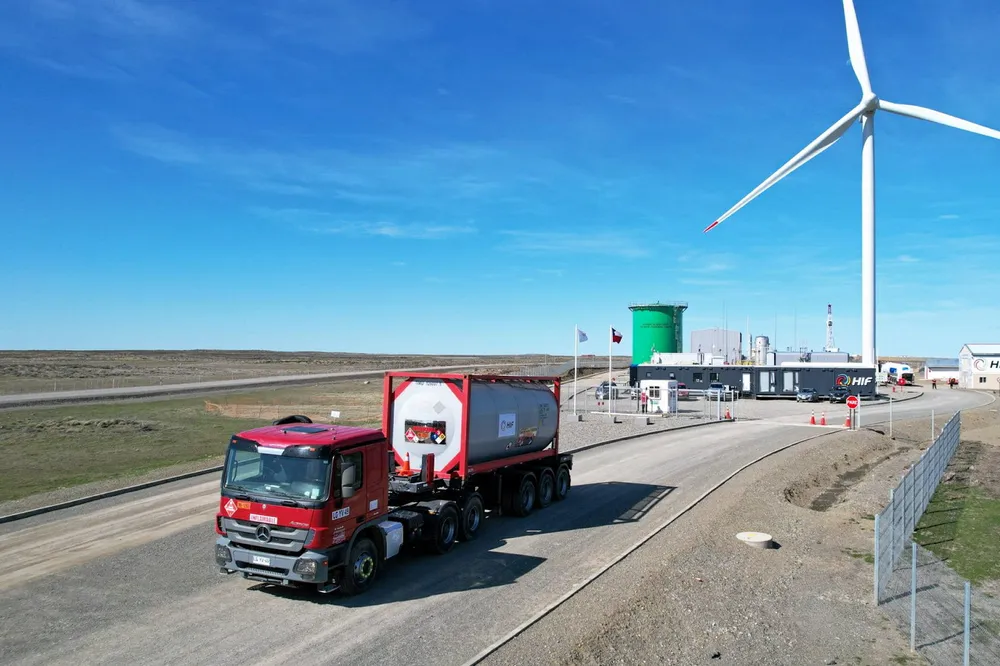First commercial shipment of green hydrogen-based e-fuel headed from Chile to the UK
HIF Global has loaded 24,600 litres of synthetic gasoline produced at its pilot plant in Magallanes for use by luxury car brand Porsche in autosports

HIF Global has loaded 24,600 litres of synthetic gasoline produced at its pilot plant in Magallanes for use by luxury car brand Porsche in autosports
